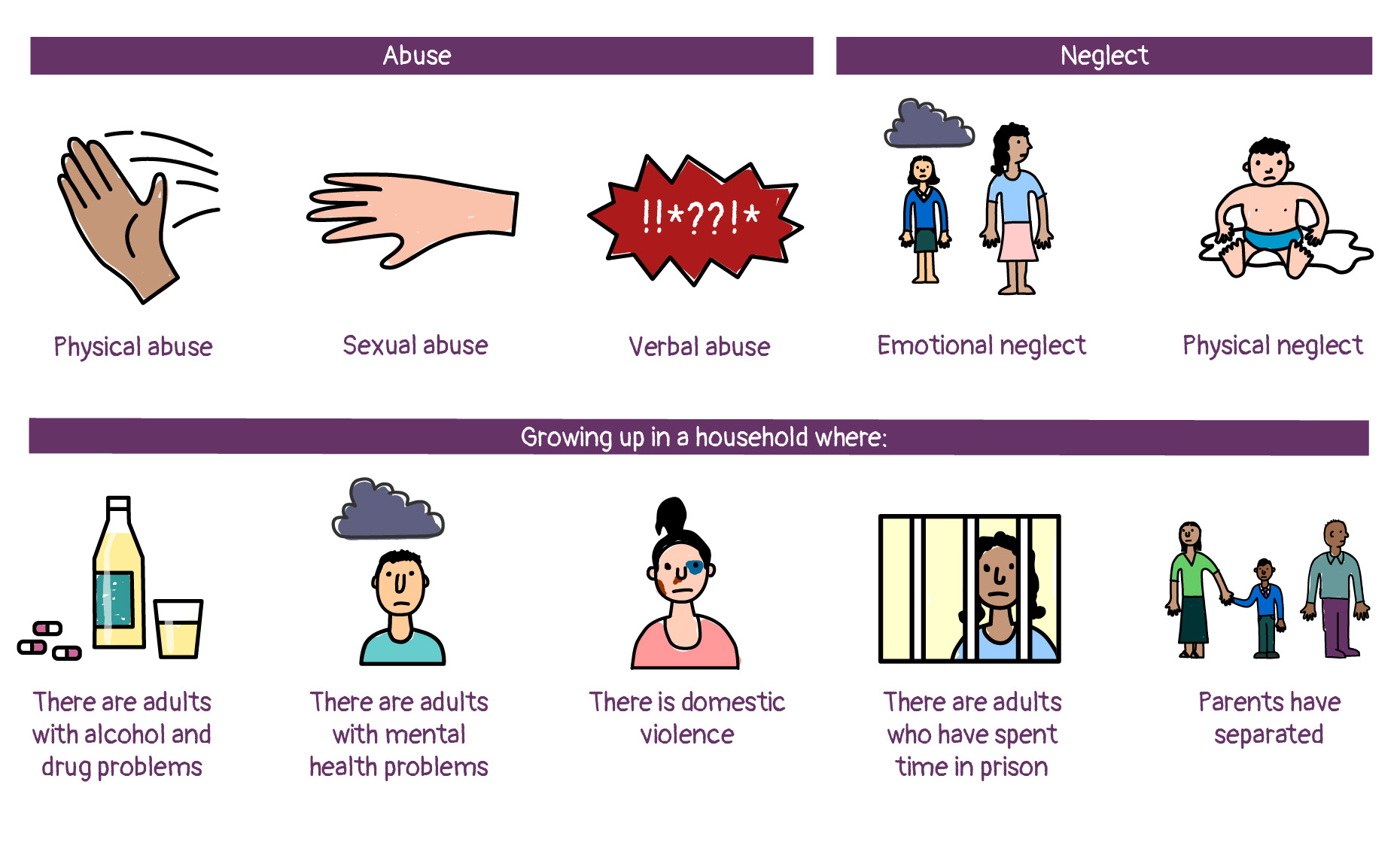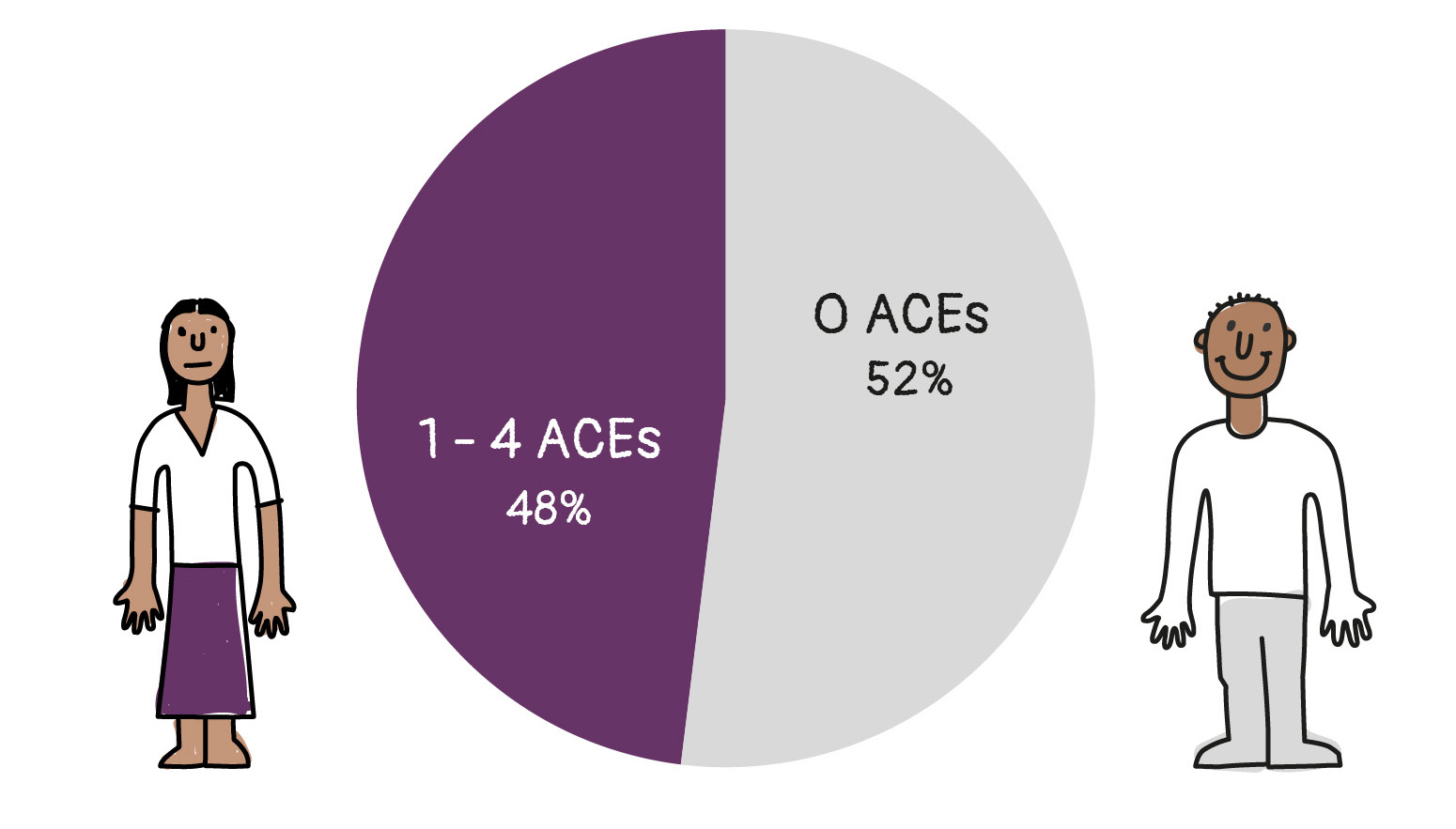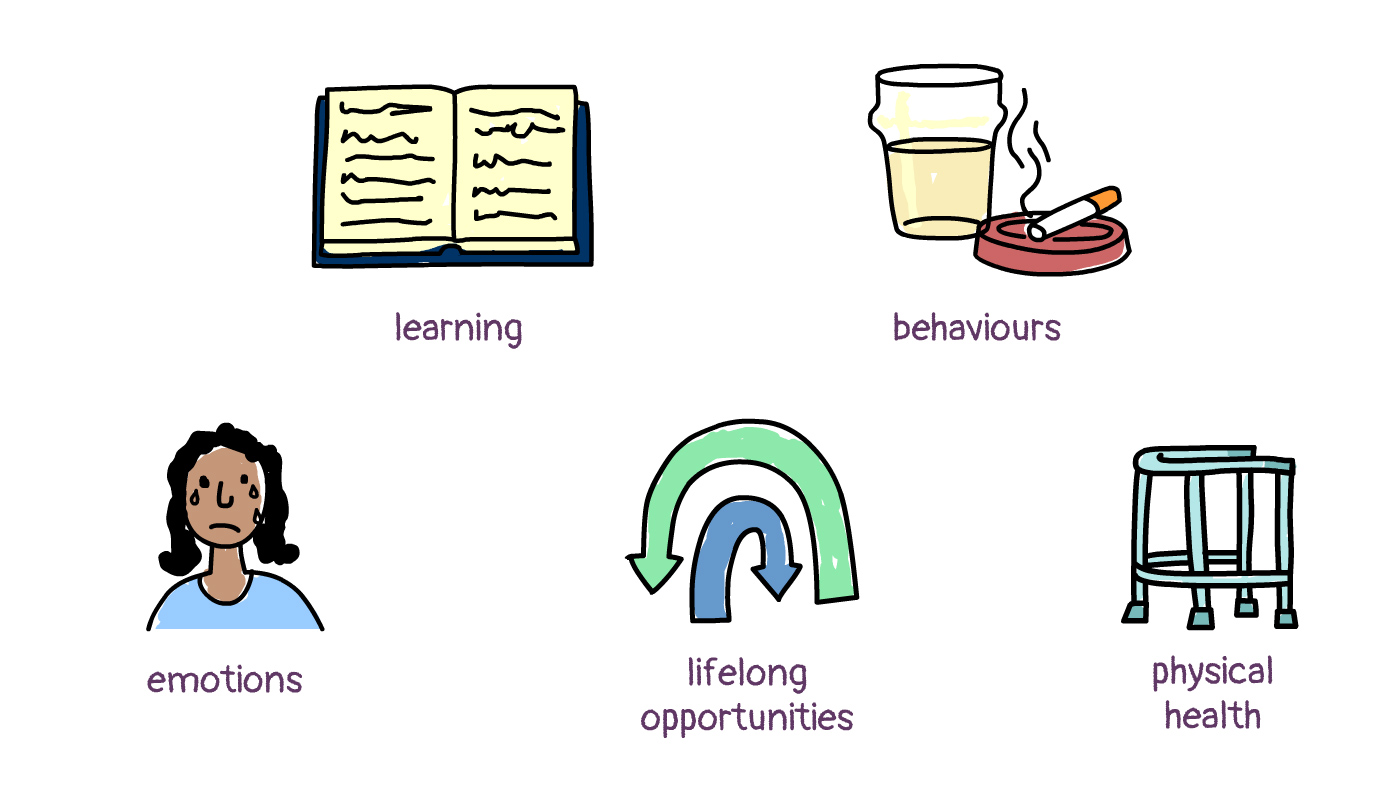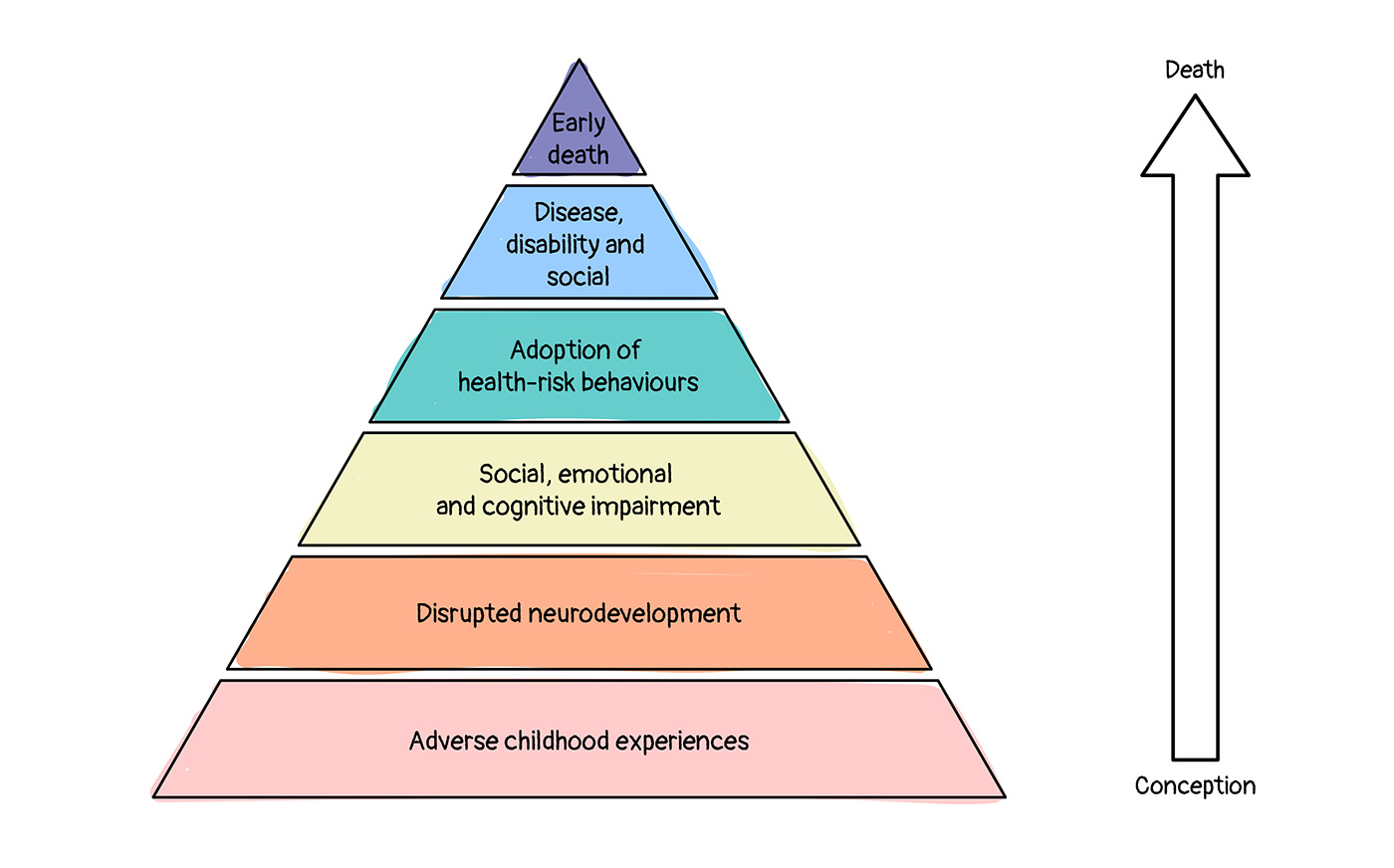What are Adverse Childhood Experiences ACEs?
Adverse Childhood Experiences (ACEs) are stressful or traumatic experiences that can greatly impact children and young people throughout their lives.
The ten widely recognised ACEs, as identified in a US study from the 1990s, are:
 As well as these 10 ACEs, there is a range of other types of childhood adversity. These can have similar negative long-term effects. These include bereavement, bullying, and poverty. In addition to these, there are community adversities such as living in a deprived area, neighbourhood violence, etc.
As well as these 10 ACEs, there is a range of other types of childhood adversity. These can have similar negative long-term effects. These include bereavement, bullying, and poverty. In addition to these, there are community adversities such as living in a deprived area, neighbourhood violence, etc.
Additional ACEs in the household, as identified by our Liverpool community, include:
- Young person with caring responsibilities
- Poverty
- Online Harm
- Displacement
- Criminal Activity
- Long-term Unemployment
- Family Conflict and Violence
- Bereavement
Additional Adversities in the Environment, as identified by our Liverpool community
- Lack of Opportunity for Growth
- Discrimination
- Fear of Unsafe Neighbourhood
- Inequality of Resources
- Low School Attendance
- Divisive Political and Media Commentary
- Isolation
- Online, social, workplace, community, family
- Socio-political events
- Lack of Trust in Authority
Why do ACEs matter?
Adversity in childhood can create harmful levels of stress, which impact healthy brain development. This can result in long-term effects on learning, behaviour, and health.
This short film highlights a child’s voice and how adversity and everyday stresses impact their life.
ACEs Training
Merseyside Youth Association’s RAISE team delivers training as part of the Liverpool ACE action plan. If you want to learn more about ACEs in Liverpool and trauma-informed practices, book your ACEs training
Emerging evidence shows that ACE-aware and trauma-informed schools improve behaviour, learning and attainment. Therefore, these help to produce happier and more resilient children and young people. Merseyside Youth Association has developed a training course that will build upon schools’ understanding of resilience and person-centred approaches. for instance, the course reflects on how they currently foster a nurturing environment for all children. Watch the course overview below.
Introduction to Adverse Childhood Experiences Early Trauma Online Learning – Office for the Police and Crime Commissioner West Midlands, funded through the Home Office Early Intervention Youth Fund.
Find out more and book your place.
ACEs in Liverpool
Liverpool’s Growing Stronger Programme is designed to help people of all ages grow and recover from ACEs.
ACEs can impact how we think, learn, act, and grow. However, this does not mean that experiencing adversity will always lead to serious negative consequences. There are many ways to help ensure a positive outcome.
The Growing Stronger team worked with young people and adults in our community to understand how we can help and support those who have or are experiencing ACEs. This resulted in an ACEs framework that sets out ways of addressing the impact of adversities that you or others may face.
The Growing Stronger Framework includes things you can do to help yourself and others in your daily life, at home, at work, or at school. You may also need some support to help you achieve a particular goal. To help with this, there are directories in Liverpool that allow you to search for your particular needs and find services local to you. These directories are a great place to start when looking for ways to get help to tackle a particular challenge or take on a positive activity that will make a difference for you.
How common are ACEs?
In England, almost half of adults have experienced at least one ACE, and 10% experienced four or more.

The impact of ACEs
ACEs have been found to be associated with a range of poorer health and social outcomes in adulthood. These risks increase as the number of ACEs increases.
In addition, ACEs can have a lasting effect on health and wellbeing across the life course. Above all, this can result in profound adverse effects on…

The ACE Pyramid
The mechanism by which Adverse Childhood Experiences influence health and well-being throughout the lifespan.

ACEs don’t define you! It is essential to understand that these statistics are an association, not a causation, of ACEs with later health outcomes. In conclusion, it shows the importance of why work needs to happen to support young people who have experienced adversity and trauma. Ensure you are relaying to young people that ACEs do not define who they are.


